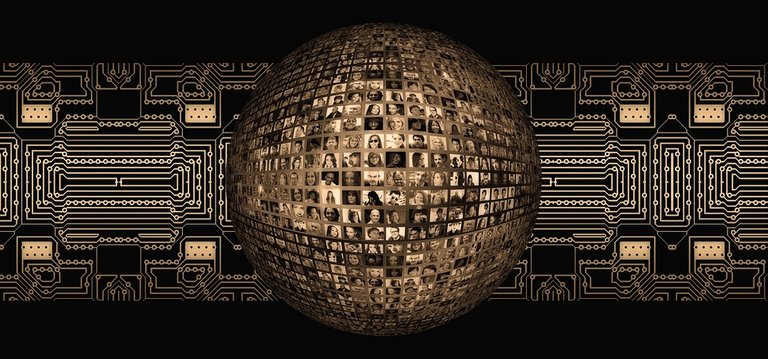
”Give me Peer Reviewed papers and I will believe you!”
What is so great about peer review?
Generally, peer review is supposed to guarantee published papers provide accurate information and make sure that the quality of the data presented is appropriate.
The review is usually done by one or more people who have a similar competence as the author.
There exist other forms of peer review than just the above mentioned scholarly peer review. Clinical peer reviews are a thing in the field of health care to ensure a doctor acted in a way that’s expected of them.
Peer reviews can be open, single blind or double blind and several other things. As you’ve probably guessed, the open one is where the identity of the author and the reviewers are known by all participants. A single blind review ensures anonymity of the reviewer which might add more honesty to the review. The double blind review keeps author and reviewers anonymous, eliminating most possible bias.
Of course, this all sounds better than it often is.
Reviewers can be biased or paid, results faked so well that they seem to be correct. A bad paper can be seen as having a higher quality just because it has been peer reviewed.
It’s a costly and slow process. But in many cases, the approval of peers is needed to be granted money for research or a spot in a journal.
And what is the alternative? Cutting out any kind of peer review without a suitable alternative only opens up the door to pseudoscience and faked results.
Read More:
Peer review: a flawed process at the heart of science and journals
Got a scientific topic which you want to see as a story? Leave me a comment!
You want to support scientists on Steemit? You are a scientist on Steemit? Join the #steemSTEM channel on steemit.chat and connect with us!
STEM is an acronym for Science, Technology, Engineering and Math

In the end, it all depends on the scientific honesty of the parties involved.
Good transparency, and experiments that are easy to replicate, come a long way in helping weed out the bad apples though :)
I appreciate the problems associated with peer review as you describe them.in my mind there are two important aspects that could be considered. Firstly and for me, peer review always improves the quality of my work. Though perhaps fraught with problems, if the reviewer takes some level of interest, comments are always useful. Secondly (and most importantly, the real peer review only takes place AFTER publication. A consensus about an important piece of work (or shit) emerges really quickly in a field. No matter what the politics or COIs were. Same for problems after publication. I'm a fan of post pub peer review and a more dynamic publication platform (where you can update a paper after publication)
Peer review takes a lot of time. I am writing reviews for 5-10 journals and this takes a reasonable amount of my time. I try to the work correctly, as I would expect others to do for me. In particle physics, this is often the case. I like to believe we are leaders in peer reviewing: open access journals, open access reviews, development of platforms like inspire or the arxiv, etc. It is possible to track citations and interest gathered by papers well before they are accepted by a journal today, at least in my field.
I would like to add that recognition is not only achieved through publications. Conferences, seminars, etc... everything counts to make you research work more visible and recognized by your respective community.
Let us hope, that biology and biochemistry will move in that direction as well! Many things you mentioned are not applicable yet, e.g. are the life sciences still in the tight grip of big journals, and although there is bioRxiv, it is frowned upon by many influencial people in the field.
And might I add something to the "Recognition"-list: Education! The ability to teach and explain should be an actual criterium for some kind of recognition and reward, as this ability is lacking in many places. Researchers, lass able in this respect, should aspire this as much as they aspire papers and findings, but without reward, it is often disregarded.
In my university, we have special (monetary) prizes for people investing their time in education. This is something I found particularly great, as usually lecturers and professors are paid to teach but evaluated through their research.
It would be even better if the evaluation was done through looking at their quality in education. Money is a nice incentive, but all too often I witness that people with poor teaching skills are hired because of their better scientific output. But at least at a university, both is important!
Yeah, this is not very common, unfortunately :(
I've heard German scientists love "beer reviewed" studies, which are found even more appreciated than regular "peer reviewed" ones.
You can even "beer review" your own study!
Have you yet studied which is the best, dark beer in Germany and I can beer review your study if I get the same results?
Because of my aversion to alcohol, I never did a beer review :(
Hey apsu,
which kind of dark beer? Stout, dark wheat, dark barley, ale? I might be able to help!
I have good experiences with stout, at least, but I don't typically even like beer so I have not much background information.
I'm open to everything.
Hm. If you had to choose between bitter, sweet and malty, what would you choose?
Is made to be an intractable problem. As the barriers to entry get thinner as time goes by, the trust becomes more centralized in the adjacent possible. Is interesting that when asked most scientists know of no better alternative to peer review to find the value of a work for publication. Even in mathematics where glory and funding are less important, this happens regularly.
As the focus is on the judging the merit of the work (which is not objective), instead of in ways to acquire and lose reputation anonymously in a Turing test resistant fashion.
Do you see any applications for blockchain technology in peer reviews? I'm not in the STEM world, but I do know that there's been instances of faking research, misaligned incentives in peer reviews, etc. Maybe the "sealing in amber" effect of blockchain tech could be used for publishing papers? Or the data collection process of papers?
I'm a bit out of my depth, but just popped into my head. Great post as always!
~ Kevin
Can be useful, can make everything worse. Just because something is stored forever doesn't mean it should be stored forever because people would still lie.
Just read through the "new" section. People aren't impressed by the fact that everything is stored.
Well put!
I saw this post about a blockchain solution for the current peer review problems.
i love science and good knowlegde..!
@suesa, you always shared with us very important informations and reasearchs about science.your today topic about "peer review" is very useful method for using to sort out informations fake or inappropriate data and presented quality wise correct data. this tool is very helpful in many fields like health ,scientific projects etc.
this particular article on the shortcomings of peer review? Really highlights and gives examples for serious problems really well.I'm enjoying this series, @suesa! Have you seen
Peer reviews are not really reliable because most of the time there is "politics" going on. Before a peer( person in the same field) conducted a peer review he/she will first ask. Who is it from? Who recommended it? Of course this is if he/she doesn't have an idea on who would he/she reviewing for. There is also the case of 'professional envy' in which the peer knew that the paper has 'juice' but failed it. Last one for me is bias, "the earth will end in 2050" although convinced by the data most peers wouldn't conduct a peer review about it. Why? Because no one wants to hear bad news, it's boring and most of the time unprofitable.
To think about it there is a strong connection between peer review and your last post confirmation bias. But hell I'm to tired to think about it. Nyahaha. Anyways, thank you very much mistress for always posting something good.
Do you have any idea what could replace peer reviewing? Doing a peer review wrong on purpose can also lead into very bad reputation of the peer reviewer, if there are other peer reviews done.
Sir @apsu. I mentioned "most of the time" not 'all the time'. Like you I also believed that doing a peer review wrong in purpose can damage the peer reviewer.
I didn't only focus on that and didn't mean all the time. But do you have any good ideas what could replace the peer reviewing?
Sadly, NONE. I think sir @apsu that peer reviewing is still the best. Although there are many issues like the bias and trust. I couldn't deny that in this time no other method can replace peer reviewing.
Yeah, peer review is not 100% reliable. It's a useful tool that can fail.
@rinaalone
nice expressions
very useful information for all steemit users around the world ,,
I also like your articles,
but sorry, I do not know much about the world of steemit,
as my friend said,
it may take a week, a month or even a year to learn it
@suesa
i love knowlegde..!